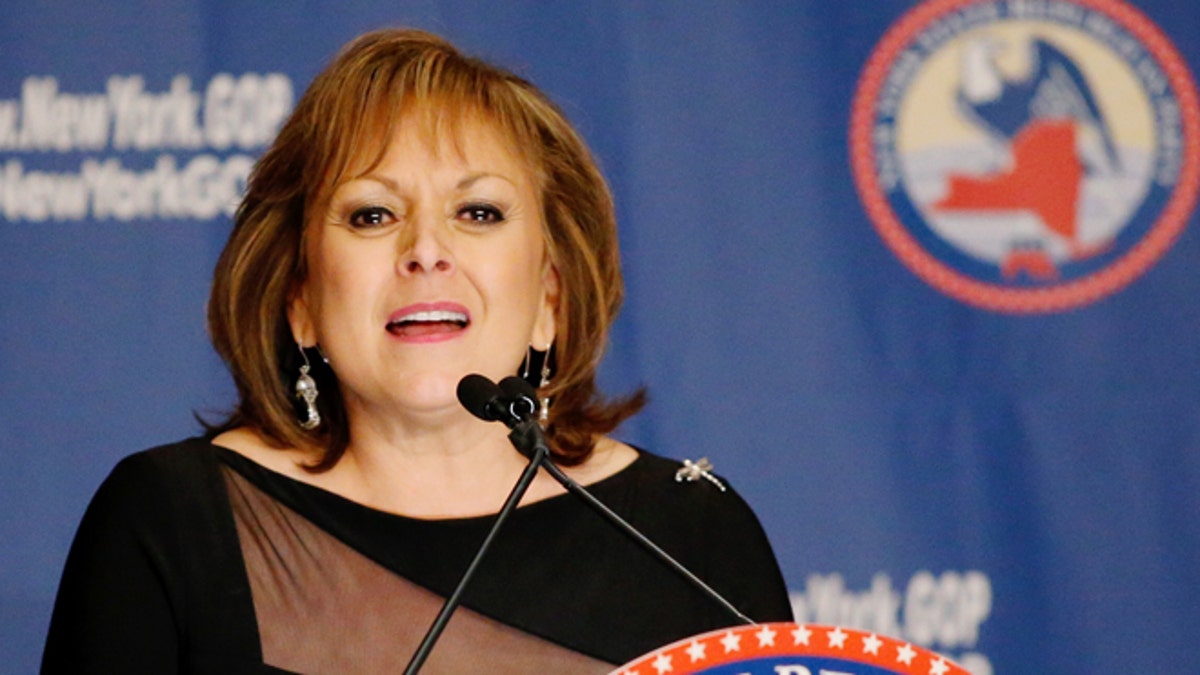
NEW YORK, NY - APRIL 14: New Mexico Gov. Susana Martinez speaks during the 2016 annual New York State Republican Gala on April 14, 2016 in New York City. Donald Trump, Senator Ted Cruz of Texas and Gov. John R. Kasich of Ohio take part in a fund-raiser for the state Republican Party, being the first time they are seen together since they decided to abandon the so-called loyalty pledge they signed last year to support whoever becomes the party nominee. (Photo by Eduardo Munoz Alvarez/Getty Images) (2016 Getty Images)
SANTA FE, N.M. (AP) – New Mexico Gov. Susana Martinez wants incoming state lawmakers to know that the state's permanent investment fund should be off limits from efforts to resolve a state budget deficit.
Martinez and other members of the State Investment Council that oversees two sovereign wealth funds and $20.8 billion in assets discussed Tuesday ways to tell newly elected legislators that the largest of its accounts — the State Land Grant Permanent Fund — should be managed as an endowment and not a rainy-day fund to be tapped in lean budget years.
Efforts to the increase distributions to education initiatives from the $15 billion permanent fund have become a perennial source of political conflict.
With fund assets near an all-time high and the state mired in budget difficulties and a fresh round of agency spending cuts, an incoming Democratic majority in the Legislature is considering whether to tap into the fund to supplement educational spending or help mobilize capital for small businesses.
Martinez cast blame on the state Senate for not resolving the state's budget deficit during a special session in October.
"The Legislature did not finish as much as they could have in fixing the deficit that is a result of the drop in the price of oil and gas," said Martinez, who has steadfastly opposed any tax increases. "They could have done more ... so that we don't have more people wanting to raid the permanent fund."
Public schools, state universities and other beneficiaries currently receive a 5 percent annual distribution from the $15 billion permanent fund — the lowest distribution rate in over a decade with the sunset of a 2003 constitutional amendment that temporarily boosted funding for education.
Republican lawmakers in February blocked a proposed constitutional amendment that would have sidestepped the governor and let voters decide whether to increase fund distributions for education.
James Jimenez, executive director of New Mexico Voices for Children, said a new proposal for permanent fund distributions to early education and K-12 initiatives can be expected when the legislature reconvenes in January.
What makes this year different is a general fund budget deficit that spurred spending cuts to most state agencies and public schools, said Jimenez, whose research and policy group favors increased distributions from the permanent fund for early education programs.
"Given the shape of the state general fund right now, I would hope that reason would carry the day," he said.




